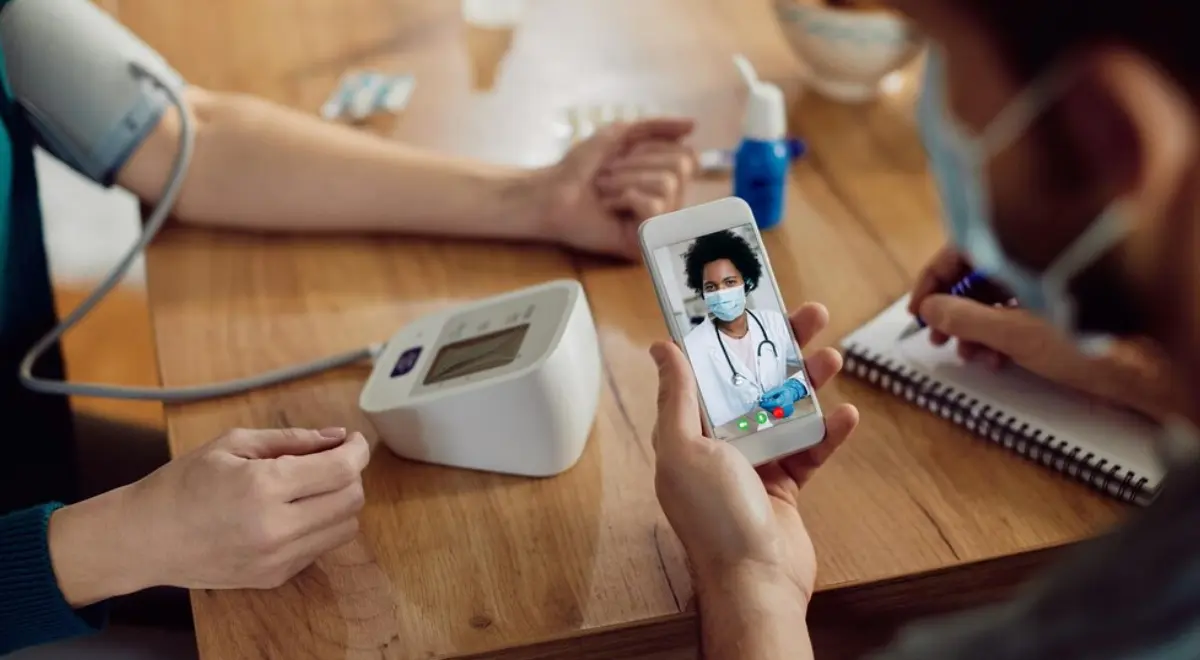Manage Chronic Conditions Using Remote Patient Monitoring (RPM)

Remote patient monitoring (RPM) assists healthcare providers and physicians in monitoring their patients’ health remotely, outside of traditional clinical settings. In other words, it monitors and manages a wide range of illnesses without requiring patients be physically present in a clinical setting.
RPM offers many advantages to healthcare providers, mainly due to its adaptability and potential to enhance patient outcomes while lowering healthcare expenses.
In this blog, we’ll provide a brief overview of the chronic or ill-health conditions that can be effectively monitored through RPM.
Table of Contents
ToggleHealth Conditions Addressed With Remote Patient Monitoring (RPM)
Remote patient monitoring can boost patient engagement, reduce the occurrence of hospital readmission, and lower healthcare costs by delivering more efficient care in a virtual setting. Some of the most common conditions that can be remotely monitored and managed using RPM include:
- Chronic Conditions
Remote patient monitoring is used to manage chronic diseases and allows patients to track their symptoms and vital signs from home, allowing healthcare providers and physicians to monitor them remotely. Some of these chronic conditions include diabetes, high blood pressure, heart failure, chronic obstructive pulmonary disease (COPD), and kidney disease.
By managing chronic conditions, RPM helps improve patient engagement, treatment plans, diagnose health issues, reduce hospital readmissions, and enable better patient and physician communication.
- Post-Surgical Care
RPM is used to monitor patients who have recently undergone surgery and are in post-surgical care. This includes monitoring vitals, infection symptoms, assessing discomfort, and ensuring adequate care. With RPM, clinicians can remotely monitor patients’ recovery progress and make any alterations to the treatment plan, if necessary.
Physicians can monitor their patient’s vital signs, such as blood pressure, heart rate, weight, and oxygen saturation to ensure they remain within normal limits. This consistent monitoring helps identify any potential concerns, such as infection or other exacerbations at an early stage.
- Elderly Care
RPM can help elderly patients monitor their chronic illnesses using remote patient monitoring devices that are quite simple to use and need a little setup. RPM software, cellular devices, and wearables are designed keeping usability for elderly people in mind. Not only this, remote patient monitoring system providers also deliver technical assistance and RPM onboarding to train patients and providers on utilizing the system in the best possible manner.
When it comes to elderly care, RPM is an effective strategy used for managing illnesses, such as rheumatoid arthritis and Alzheimer’s disease, along with improving clinical outcomes, reducing hospitalizations, and boosting patient satisfaction.
- Respiratory Diseases
Remote Patient Monitoring helps patients with respiratory disorders, such as asthma and COPD in monitoring their breathing patterns and oxygen levels. Using FDA-approved remote patient monitoring devices, patients can measure vital signs such as lung capacity and blood oxygen levels in the comfort of their homes and physicians can act on the records to provide the right treatment.
Consistent monitoring of peak flow measurements in asthma patients can aid in detecting early indicators of asthma conditions and allow patients to seek timely medical attention.
Conclusion
RPM is a versatile remote health technology that allows healthcare professionals and patients to track their health and chronic conditions. It assists patients in better managing their symptoms by providing real-time health status updates.
HealthArc is your top choice digital health platform for remote patient monitoring, chronic care management, transitional care management, principal care management, Remote Therapeutic Monitoring and behavioral health integration. Our HIPAA-compliant software offers billing assistance, device management, and API connectivity dashboards to deliver seamless remote healthcare solutions.
Schedule a demo to learn how our RPM program can help monitor and manage ill-health conditions or call us today at +201 885 5571 to set up a consultation with our experts.
Most recent blogs
Categories
- Advanced Primary Care Management
- Behavioral Health Integration
- Cellular Remote Patient Monitoring
- Chronic Care Management
- Chronic Care Management Billing
- Chronic Care Management CPT Codes
- Chronic Care Management Program
- Chronic Care Management Software
- Digital Health Platform
- Principal Care Management
- Principal Care Management CPT Codes
- Remote Care Programs
- Remote Monitoring Devices
- Remote Patient Care
- Remote Patient Monitoring
- Remote Patient Monitoring Billing
- Remote Patient Monitoring CPT Codes
- Remote Patient Monitoring Devices
- Remote Patient Software
- Remote Therapeutic Monitoring
- Remote Therapeutic Monitoring Billing
- Remote Therapeutic Monitoring CPT Codes
- Telemedicine & RPM
- Transitional Care Management
- Transitional Care Management Billing
- Transitional Care Management CPT Codes
Related Posts
- February 21, 2025 | Read Time: 5 mins
RPM’s Role in Identifying Early Symptoms of Chronic Conditions for Prevention
- February 14, 2025 | Read Time: 4 mins
Monitoring Post-Surgical Recovery With RPM Systems
- February 10, 2025 | Read Time: 5 mins






